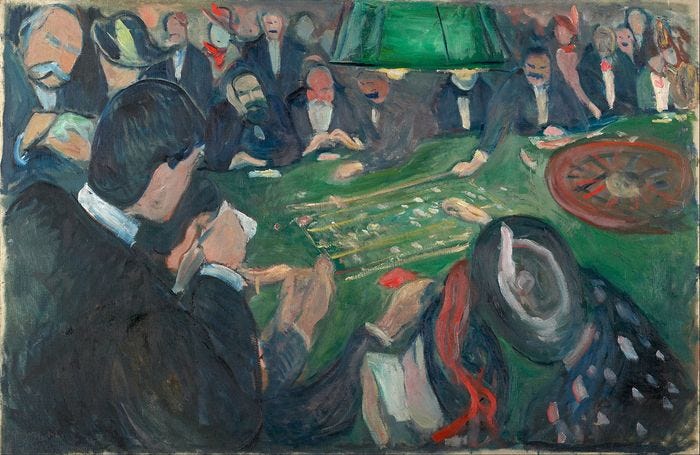Brain Food #553
The bets that don't work out
Thoughts of the day
In school, we are taught that mistakes are bad, and are conditioned to be afraid of them and to avoid them at all costs. We are literally degraded for making errors, and even though this is crucial in learning the hard facts of science, in life it may be less so. If life is a series of bets, then it is very unlikely that all of them will pay off, and when they do, this is not only due to merit, but also due to probability.
When big bets don’t pan out, like a business failing, or a relationship not working out, then the gambler is usually the first to blame for having made the wrong choices. In reality, though, this is not the case.
Our brains are wired in such a way that how we treat the failure of others versus our own wildly differs. A well-known cognitive bias is the self-serving bias, through which we attribute our successes purely to our own capabilities, and our failures to external factors. Similarly, when we judge others, we assess their actions based on their personalities and not their circumstances. A useful example to remember is that of an aggressive driver who blocks our road. We think that person is rude and self-entitled, but they could just be rushing to an emergency.
Knowing that everyone will, some way or another, make a mistake, unrelated to who they are or how ‘good’ they are, is then no reason to stop us from taking our own risks. Remembering that we are all parts of complex systems, with the same cognitive flaws and lack of perfect information, can encourage us to maintain some sense of responsibility for our actions, but also to be kind to each other, and to ourselves.
“So we shall let the reader answer this question for himself: who is the happier man, he who has braved the storm of life and lived or he who has stayed securely on shore and merely existed?”
― Hunter S. Thompson
At the Roulette Table by Edvard Munch portrays a chaotic scene at a roulette table, that is not too different to life itself, when viewed from a distance. Some losers, some winners, all in it together, the table itself barely distinguishable, the odds against them.
Thank you for reading today’s Brain Food. If you were forwarded this email and you'd like to read more, you can sign up and receive it in your inbox Monday to Friday.
And if you love Brain Food and want the world to know about it, feel free to share it with them by using the button below or forwarding them this email.
If you have any questions, thoughts, or ideas you'd like to share, just hit reply.
Read longer Brain Food musings on Medium.

